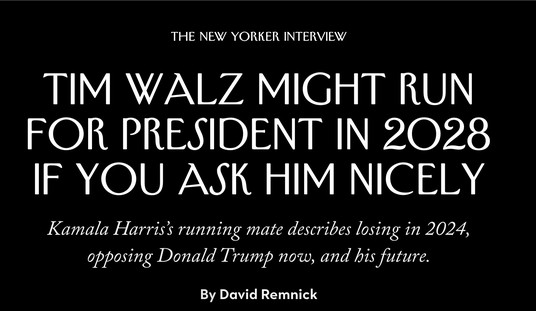So says … Senator Mike Lee, the pro-life Republican from Utah whose name is on Donald Trump’s short list for the Supreme Court? The man Ted Cruz called “the single best choice for President Trump to fill this vacancy”? Whaaaaa ….? Lee appeared on Fox & Friends this morning to discuss Anthony Kennedy’s retirement and pronounce himself honored just to be under consideration.
It takes a while to get to the elephant in the room, but Brian Kilmeade eventually asks Lee about whether Kennedy’s departure is Roetterdammerung and an end to legal abortion. Democrats are already beginning to shriek that it will be as a way to motivate their base, and some Republicans are no doubt salivating at that prospect, too. Lee says the whole issue is overblown because abortion (and same-sex marriage) have already been decided. The doctrine of stare decisis matters more than whoever gets put on the Supreme Court, Lee insists:
Lee (R-Utah), one of 25 candidates President Donald Trump has preselected for nomination to the high court, is among the most conservative lawmakers in the Senate. But he said liberal precedents might not fare as badly with the court moving forward, as some have predicted.
“All of those issues involve cases that have been decided previously by the Supreme Court. It’s one thing for them to assume that a Republican appointee might come at those issues from a different worldview as a matter of first impression,” Lee told Fox News’ “Fox & Friends,” the morning TV news show the president is known to favor.
“They have to take into account the doctrine of stare decisis, which is a doctrine that generally puts the Supreme Court on a path of following precedent,” he continued. “So, they can’t know for sure how any one of those issues is going to turn out and whether any one of those cases might be overturned.”
How well did stare decisis work in Janus? The court overturned another mid-70s precedent to reach its conclusion, arguing that Abood was “poorly reasoned” in the first place, and then twisted to fit arguments in other court cases. Conservatives have made that argument about Roe since the mid-70s too, and that its legal structure is so unsound that it demands a reconsideration despite stare decisis. There were four justices willing to do that with Abood besides Kennedy, so …
The better argument here might be to point out that there’s probably not four votes on the current court to overturn Roe even apart from the stare decisis doctrine, although there may be four to start rolling back Casey. After Kennedy’s retirement, John Roberts will end up being the center of the court, and that’s the same man who turned himself into knots to uphold the individual mandate in ObamaCare. Roe is much more of a cultural touchstone than Abood, which would make any chief justice wary of political taint somewhat reluctant to reassess. It’s more likely that they’d start with Casey and allow more restrictions on abortion, at least at first.
What this shows, though, is that Lee isn’t just “honored” to be considered. He’s actively courting Trump for the nomination, and at the same time politicking for it amongst his colleagues. He’s practically pledging to meet Democrats’ demand for fealty to stare decisis, although he was careful enough to avoid fully committing to it as a deciding factor. Furthermore, he’s also pointing out that his nomination wouldn’t actually risk the confirmation, as Senate rules allow him to cast a vote for himself. This amuses Kilmeade, but it might not be so amusing to Democrats eyeing the GOP’s thin margin. At any rate, this downplaying of the abortion issue is certainly not what one would expect of a philosophical conservative whose only interest is in pushing for a like-minded nominee.
On the other hand, Lee also offers an alternative — his brother Thomas, also on Trump’s list. Thomas is 54 years old, and has served on the Utah Supreme Court for almost eight years. He clerked for Clarence Thomas at one point, and is considered cut from the same mold as Thomas and Antonin Scalia. His scholarship is well established; Thomas Lee is the most prolific opinion writer, and apparently genial enough to work with his colleagues despite also being the most prolific dissenter:
With 5 Justices on the Court, we would expect each Justice to write roughly 20% of the Court’s majority opinions, and that is roughly what we see. The only Justices outside the 18-22% range are Stewart (17%) and Lee (27%). (Side point: Given that Lee dissents relatively frequently, it is remarkable that he is also the most common author of majority opinions. His willingness to dissent has apparently not alienated his colleagues.)
What’s more interesting, though, is to see which Justices take the time to write concurring or dissenting opinions laying out their own thinking separately from the official majority opinion. Although every ruling needs a written majority opinion, nothing compels a Justice to release or concurring or dissenting opinion other than a desire to formally articulate his or her thoughts on a case. Thomas Lee is prolific in this respect. Whereas some justices release a concurring or dissenting opinion in only a handful of cases that they hear, Lee releases them in 16% of the cases he hears. When we combine his concurring and dissenting opinions with his majority opinions, we see that he releases a written opinion of one type or another in 43% of the cases he hears—almost half. Lee’s closest competition in the period under examination is Michael Zimmerman, who released written opinions one-third of the time.
That kind of depth also provides a target-rich environment for opponents, but that mattered more when the filibuster still applied. If Trump doesn’t choose one Lee, he’d still have some leverage in the Senate by picking another.








Join the conversation as a VIP Member